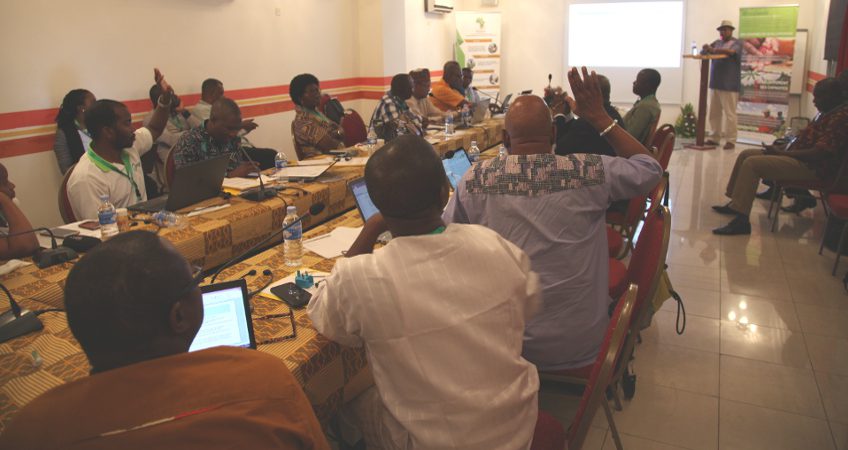Conveyed by the African Union Commission, in partnership with AfricaSeeds, a pool of experts from African countries gathered to deliberate on the progress achieved over the decade of implementation 2008-2018 of the African Seed and Biotechnology Program (ASBP), and to reflect on the way forward.
The Expert Consultation Workshop was held from 18th to 20th of September in Abidjan. There were more than 25 participants from ten countries, representative of various stakeholders of the seed sector, including government officials, national experts and staff from international and regional institutions and development organizations such as CORAF, COMESA, CGIAR, AGRA, TASAI and the Seed Systems Group.
In his welcome address, Dr Kouame Miezan, Executive Director of AfricaSeeds, said Africa has long recognized quality seeds play a critical role in building food and nutrition security and transforming agriculture. He added: “this workshop is a great opportunity to revive the ASPB which is key to support Africa-owned and Africa-driven initiatives towards these very goals.”
The ASBP is the continental framework for seed sector development in the continent.
At the opening ceremony, both the UN Food and Agriculture Organization and the African Union representatives stressed the importance of increasing the knowledge and use of ASBP amongst stakeholders so to improve coherence and avoid duplication in seed sector development in the continent.
The presence of African Union Commission officials has been instrumental to steer efforts towards actionable plans. The AUC has been promoting ASBP from the very start, when the Commission hosted a meeting in 2007 during which the Heads of State and Government adopted the ASBP.
During the workshop, participants were requested to assess progress achieved in terms of activities and resources mobilization, and to propose recommendations concerning the program implementation in the next decade. Each group reported back in plenary providing independent evaluation and carefully crafted proposals.
The complexity of seed sector development means that no African country, acting alone, will be able to surmount the burden of seed insecurity that has plagued Africa for far too long. Partnerships, coordination and subsidiarity, therefore, are key.
With this in mind, the AUC has mandated AfricaSeeds to implement and coordinate the implementation of ASBP and serve as technical, policy and resource mobilization initiator with aafr view to assisting in the development of comprehensive national, regional and continental seed programs in Africa.
Workshop participants were keen to support AfricaSeeds in this much-needed update and revision exercise and thus to substantially contribute to African agricultural transformation.
See pictures here.
